Many people in today’s world will look at teenagers and say that real love at our age does not exist, can’t last, and if we feel it, then we’re obviously mistaken.
Pressure to have a boyfriend or girlfriend in high school varies. Freshmen often come in with this idea of what high school life is supposed to be—an idea formed from countless movies and TV shows depicting a “typical” high school. As a result, many freshmen see a relationship as an important component of becoming high schoolers. Although some may have had their 8th grade relationships, most didn’t amount to much. Texting and smiles in the hallway and maybe a kiss stolen in a deserted corner of their grade school constituted perceptions of love back then, and high school brings added pressure.
Public displays of affection, such as handholding in the hallways, are new for many who previously had to walk in line with their class. Sitting together at lunch is now possible because students no longer have to sit at tables with their own gender or own homeroom. Consequently, many are extremely willing and excited to accept anyone who asks them out. Romance is more apparent in high school, and freshmen tend to experiment with how relationships can work in a new, more free environment and potentially “dating” and “breaking-up” with several people throughout the year.
Sophomores start to become more aware of the nuances of relationships.
They’re more selective as to whom they want to date and, although the relationships still may only last a month or two, they allow for a greater grace period between relationships. As a sophomore, the idea of having a boyfriend or girlfriend just for the sake of saying you have one dwindles in importance. A few couples may start to stand out about this time as those who were exceptions to the overall flighty freshman attitude toward relationships and have been together since the previous year. Others stand out as particularly close couples that thrive as their sophomore year goes on.
By the time students become juniors and seniors, the novelty of having a boyfriend or girlfriend has pretty much worn off. Most are happy with or without one and become highly selective as to whom they date. By this time everyone knows everyone else and knows who they are attracted to and who they aren’t. Juniors stress about school, the importance of their grades, and the ACT, while seniors stress about college applications, causing relationships to be pushed to the back burner if they’re already single and those in relationships remain as such. Long-term relationships at this stage are rather common and would be described by those in them as love.
We are conditioned to fall in love in high school.
I believe that statement wholeheartedly. As we grow up and are exposed to media outlets like movies, books, and TV, we see teenage relationships everywhere. High school is a very popular setting for movie and TV story lines and romance is included in the vast majority of such plots. Literature is fashioned similarly. Regardless of genre, most Young Adult literature has at least hints and traces of romance. Whether specifically looking for it in a Sarah Dessen teen romance novel, looking to Libba Bray historical fiction, or into the fantasy worlds of Harry Potter, Twilight, or the Mortal Instruments, romance somehow permeates everything we read. It is impossible to look through a shelf of movies or a shelving unit full of books without encountering a staggering amount containing some elements of romance, so it only stands to reason that such importance assigned to the topic would have an impression on us.
I believe in high school love and not only because of my personal experience. The Triangular Theory of Love states that different types of love consist of any one, two, or three of the following characteristics: passion, intimacy, and commitment. Consummate love, or real, true love, involves a balance of all three. I have seen many relationships start and end in the last few years and yet there are some that haven’t ended. Supposedly the aspect of true love which is most often absent from high school relationships is commitment, and yet I’ve been in a relationship for over two years and there are quite a few other senior couples about the same time and more that have been together about a year.
No one knows what the future holds and I can’t pretend to know what happens after we graduate high school for that remains to be seen, but I do know that love can happen in high school. Years ago many of us would be married, or close to it, by now. Of course, today’s society would never allow that, so is that to say that, by today’s standards, those marriages could never have been based in love? Maturity is biological as well as psychological; therefore those 17 and 18 year olds weren’t that different than us. Walking the halls here every day can prove the existence of teenage love that really can last.
None of this is to suggest that every high school relationship is a model of consummate love, but take from it that, no matter what is said on the topic, teenage relationships are real, can be based in love, and certainly can last.

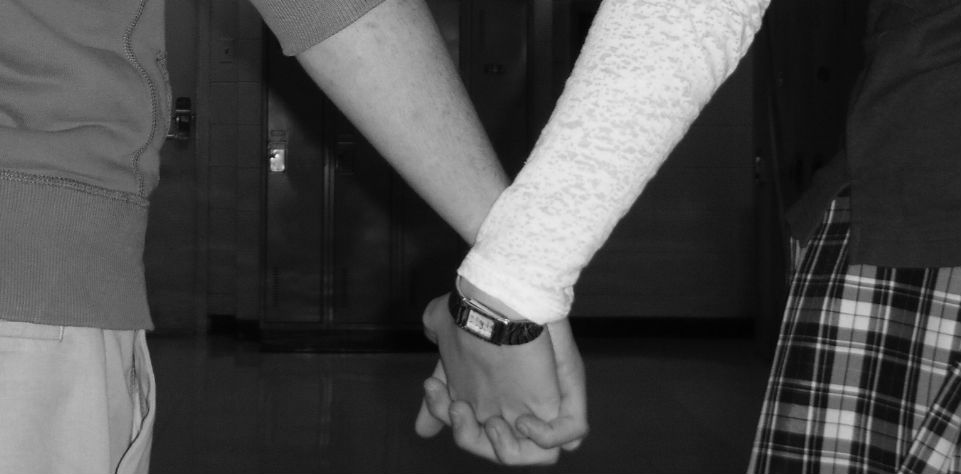




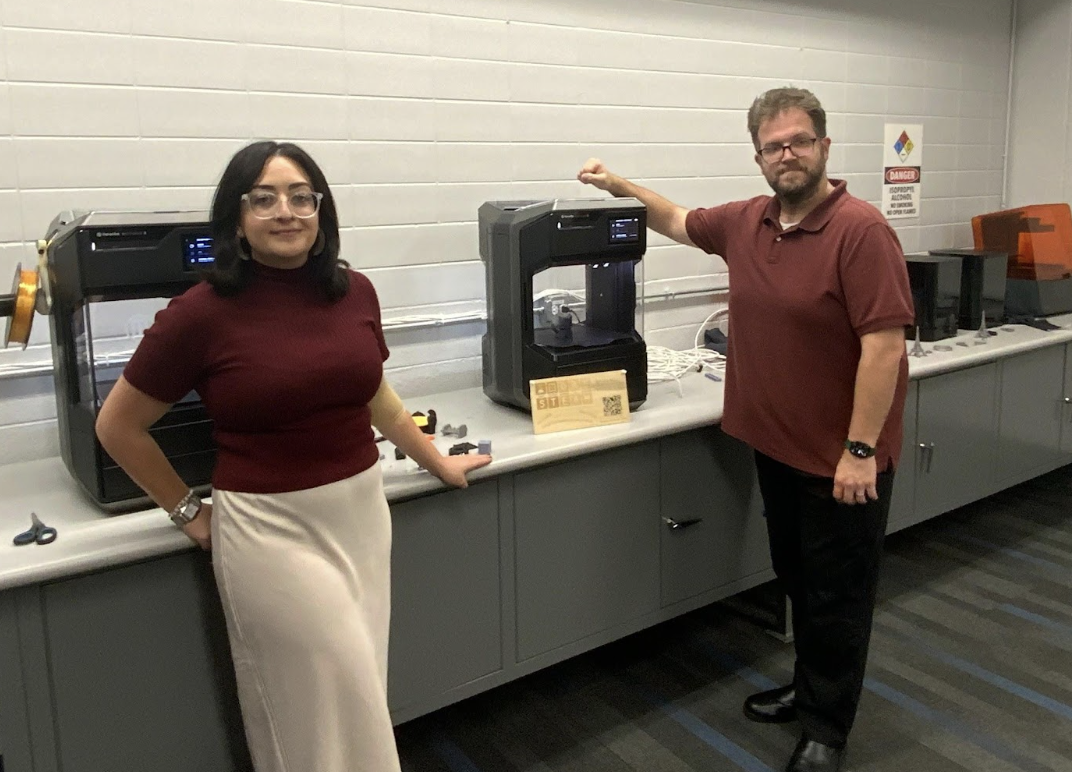


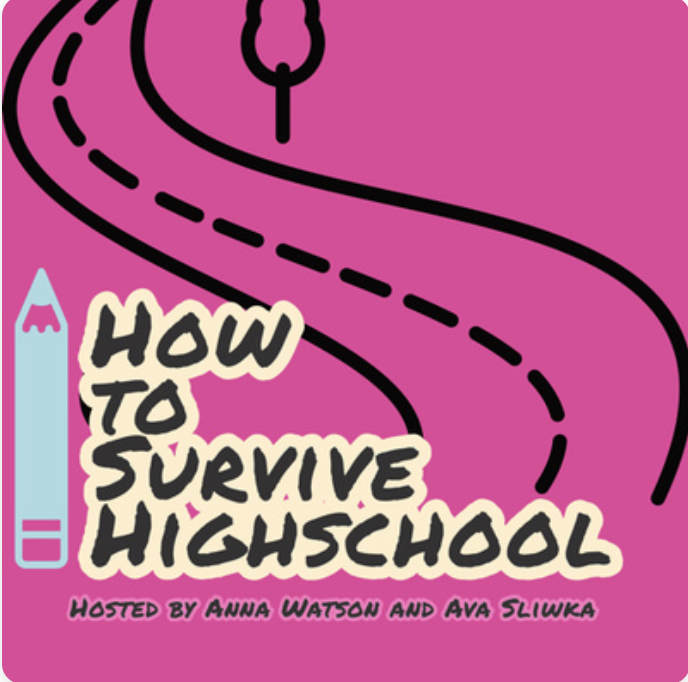
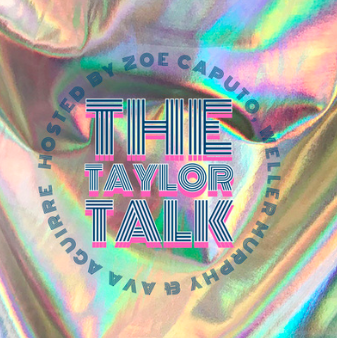


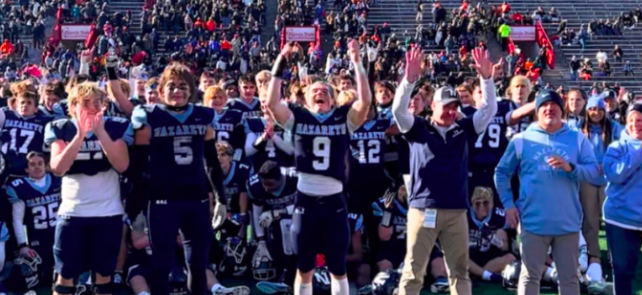
Sydney • Jan 31, 2013 at 1:35 pm
Real love can totally exist :p Loved this article 🙂 Looking for more from you Kate 😉